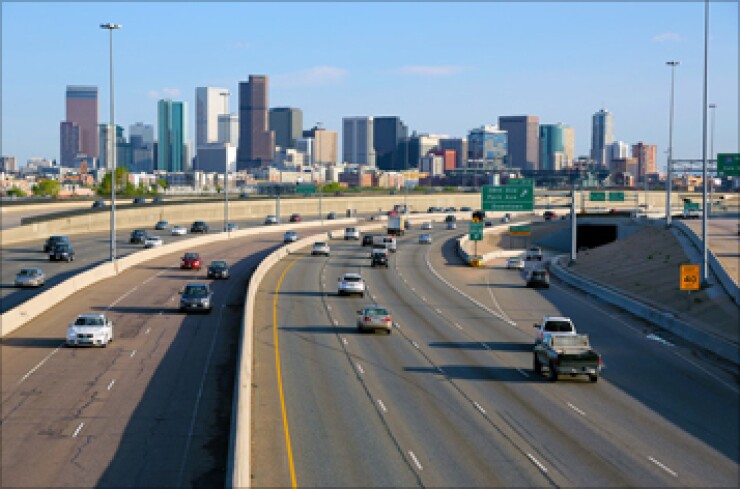
DALLAS -- Colorado voters could decide on $3.5 billion of new highway notes in November if a measure adopted late Thursday by the state Senate passes the House before the 2016 General Assembly session ends on Wednesday.
The Fix Colorado Roads At of 2016 (Senate Bill 210), which was introduced on May 2, would direct the Colorado Transportation Commission to ask voters for $3.5 billion of 20-year transportation revenue anticipation notes to fund critical transportation needs in the state. The bill requires the referendum to be held in November of 2016, 2017, or 2018.
The state Senate passed the measure after Sen. Randy Baumgardner, a Republican from Hot Sulphur Springs who sponsored SB 210, agreed to strip the stipulation that $350 million of the proceeds would be dedicated to public transit.
All 17 of the Democrats in the Colorado Senate opposed the bill in a voice vote Thursday, while the 18 Republican senators voted in favor. Democrats hold a narrow edge in the House, with 34 of the 65 seats.
The bill would allow the state to issue up to $3.5 billion of TRANs for road projects, with a total cost to the state of $5.5 billion.
The Colorado Department of Transportation has $704 million of outstanding debt rated Aa2 by Moody's Investors Service and AA by Standard & Poor's and Fitch.
Baumgardner said Colorado could issue the new road notes without raising taxes because the state will make its final debt service payment in fiscal 2017 on $1.7 billion of TRANs authorized by voters in 1999.
An analysis of the bill by the Northern Colorado Legislative Alliance said the note proceeds would accelerate work on more than 60 transportation projects across the state.
The bill would also allocate 5% of annual general fund revenue, or about $160 million per year, to the Colorado DOT for paving and other maintenance projects.
Voter approval of the TRAN plan would keep intact the existing financial structure that provided debt service for the existing notes, said Sandra Solin, director of the Fix Colorado Roads Coalition advocacy group that supports Baumgardner's proposal.
'Both sides, including the governor, said at the outset [of the 2016 session] that transportation was a priority," Solin said. "I am hoping they will end the session addressing that priority."
Shailen Bhatt, executive director of the Colorado DOT, said the state faces a nearly $9 billion revenue shortfall in meeting its transportation infrastructure needs over the next 10 years, and a $25 billion shortfall over the next 20 years.
"Almost all of our budget right now is going to maintaining our system. We are not adding capacity in the state," Bhatt said. "We're a growth state, and we've been growing and we're going to continue to grow."
Colorado motorists drove 49 billion miles on state highways and roads last year, and that total is expected to reach 70 billion miles by 2040, according to Colorado DOT projections. Colorado's population is expected to top 8 million by then, up from today's 5.4 million residents.
"People are already paying more for transportation in Colorado" Bhatt said. They're paying more in terms of the frustration. They're paying more in terms of congestion."
The Colorado DOT gets 61% of its highway budget from the state's gasoline tax of 22 cents per gallon, which has not been increased since 1992, Bhatt said.
"You can't buy a car today for what you paid in 1992. You can't buy a house today for what you paid in 1992," he said. "But we are investing in our transportation system like it's 1992."





